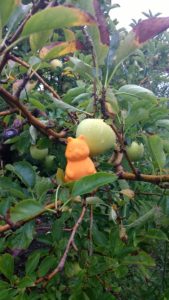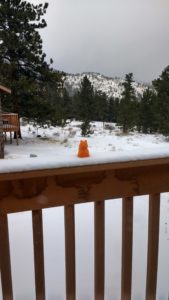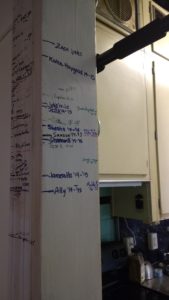March has brought triumph, a scary moment, and change.
First of all, the triumph: I got accepted into grad school. In the fall, I’ll be pursuing my Masters in Social Work.
The scary moment happened a couple weeks ago when my housemate and I got rear ended on our way to work. Our actions were rather primal. I instantly burst into tears and my housemate called 911 and put on the hazard lights. A few minutes later, it was reversed. I was calm and her tears were coming. I’ve been in so few situations in which such an involuntary, primal reaction was provoked that I felt like my body had betrayed me.
The response to our calamity was pure sympathy, which I partially expected. I did not expect, however, the cake and the bread delivered to our door nor the concerned emails from people I hadn’t told about the accident. Even though I’ve lived in the community for seven months now, a community which frequently donates pounds of food to us, I’ve forgotten how generous and thoughtful it is.
Two weeks later, I still look back at the accident and my breath is taken away by how lucky we were. My car was totaled, but we were okay besides aches and pains that have faded away. I know full well that if I hadn’t straightened out the car from the skid it had gone in to, we could have been broad sided and our injuries would have been significantly more severe. While both of us would have preferred to have not been in that accident, we were lucky to have each other to lean on each other in the few minutes before the police arrived and in the next few days and weeks.
March hasn’t brought a whole lot of tangible changes except I have a new, undamaged car. Rather, it has acted as a herald to probable changes in my life, such as receiving student loans for the first time and starting my MSW program. I’m sure that there a lot more to come.


